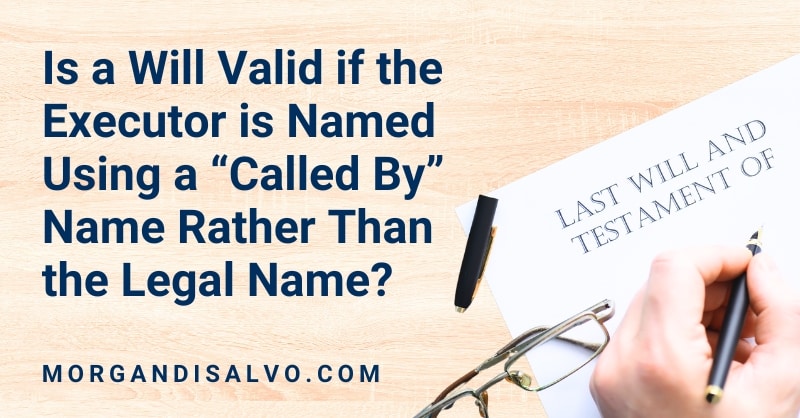Question: Is a Will valid if the Executor is named using a “called by” name rather than the legal name? My uncle named me as Executor in his Will using the name that everyone calls me, not my legal name. Do I need to have witnesses sign an affidavit that I am the named person?
Loraine’s Answer: The validity of a Will is not generally affected just because the Will names a person as a beneficiary or fiduciary in a Will but does so using a name that is different from that person’s legal name. Instead, as long as the Will is validly executed, the person to whom it belongs had the legal capacity needed to sign it at the time it was executed, and the Will is not the product of undue influence, the Will should be valid even if the names used in it are incorrect. However, when the Will is offered for probate or being administered, it may be helpful to refer to the incorrectly named persons using “also known as” or “a/k/a” or similar designations. An incorrectly named person might also in some cases need to be able to provide some evidence that supports the conclusion that the person is actually the person meant by the incorrect name, such as a marriage license for an Executor who was designated using a legal maiden name but has subsequently married and changed her legal name. For example, in a Petition to Probate Will in Solemn Form where the Executor named is designated by “Joe Smith” but has the legal name of “Joseph Robert Smith,” the Petition might be filled out as “Joseph Robert Smith (a/k/a Joe Smith).”
In any case, whenever you are asked to serve as an Executor of an estate, you should hire an experienced probate attorney to help you. Probate is not a good do-it-yourself project.
Key Estate Planning Takeaway: While the best practice is to use a person’s full first, middle (if any), and last legal name, along with a statement of that person’s relationship to the testator, when naming a person in a Will, including a partial or incorrect name is not necessarily fatal. If a person is named in a Will using a name that differs from that person’s name, it often just means that some additional clarification must be provided when the Will is offered for probate.
This “Q&A with Loraine” blog series features answers from Morgan + DiSalvo Partner Loraine DiSalvo to common questions. A key takeaway from each exchange highlights an important facet of estate planning.


